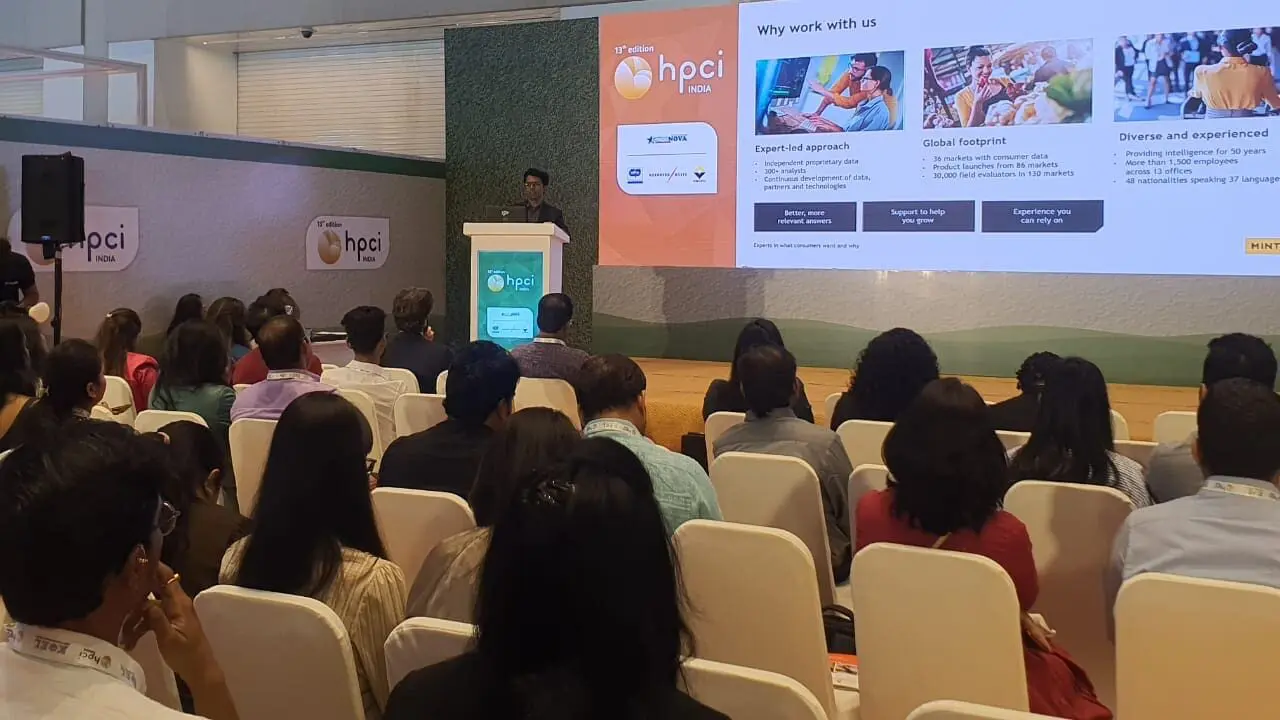At the recent Home and Personal Care Ingredients (HPCI) trade show in India, Mintel presented the 2024 Global Beauty and Personal Care Trends. Saurabh Bajpai, Associate Director of Client Success, delved into the application of these trends in India’s dynamic beauty industry, highlighting the focus on quality over quantity, the connection between mind and body, and the potential benefits of AI for consumers of beauty and personal care products.

Sophisticated Simplicity
Sophisticated Simplicity underscores the minimalist approach to appearance (or ‘quiet beauty’), emphasizing ingredient quality, proven efficacy, and simplicity.
Emphasizing functionality and tangible results enables beauty brands to engage a more discerning consumer base to drive revenue growth and strengthen the market base.
In India, 85% of female consumers think it’s worth taking the time to compare products to find the best deal. For brands, the key is to provide clear information and products that deliver. They should focus on ingredient quality to help consumers make informed choices. Indian brand d’you combines the power of over 11 different actives into one serum, while Brillare, another Indian brand, is a peeling solution with lactic and salicylic acids.
Other ways in which brands can ride on the Sophisticated Simplicity trend is to improve product efficacy with transformative textures and explore “ingredients of the future.” In the US, Strip Caviar Jelly Makeup Remover has red suspended bubbles that burst when massaged into the skin. At the same time, L’Oréal, together with Unilever and Kao, has made a major investment in Geno, a biotechnology venture.
Neuroglow
Neuroglow looks into the intricate relationship between mental wellbeing and physical appearance. In India, 8 in 10 consumers agree that looking good makes them feel confident. Furthermore, over two-thirds of Indian women said maintaining good mental health is vital to overall wellbeing.
The mind-body connection and inside-out beauty are being explored more by big companies. Neurocosmetic beauty suggests that the stress-relieving benefits of adaptogens can be further harnessed and explored. Adaptogens are plants and mushrooms that help your body respond to stress, anxiety, fatigue, and overall wellbeing.
Herbs and fungi are considered adaptogens used in traditional medicine systems such as Traditional Chinese Medicine (TCM) and Ayurveda. Among the popular examples of adaptogens, as mentioned in the scholarly texts of Ayurveda, are ashwagandha, brahmi, gotu kola, and tulsi, aside from other potent herbs.
In Japan, Lycopure Serum #1 uses BH Tomato, which is rich in GABA and is known to benefit sleep by aiding relaxation and relieving anxiety and stress. In India, Daughter Earth A Thousand Roses Body Elixir has vetiver root that claims to calm senses and nurture skin. Brands must tap into the mind-body connection and develop beauty products that make people look and feel good. For brands, this can foster emotional connections and enhance their reputation.
Beaut-AI
With Beaut-AI, artificial intelligence can transform the beauty industry by making it more personalised, efficient, and effective. AI helps brands with personalised recommendations, virtual try-on experiences, and data-driven insights. It also helps identify emerging beauty preferences and eco-friendly options. Inclusivity is promoted through AI algorithms trained on diverse datasets, catering to a wide range of beauty needs.
K-SCAN by Kérastase is an AI-powered hair and scalp smart camera for hairdressers that uses technology for more personalized beauty solutions. Meanwhile, Arcta Plus Strengthening and Thickening Lotion from China is enriched with AI-tech-discovered peptides.
There is consumer optimism for AI, as 81% of Indian consumers who have heard of AI agree that it will be mostly beneficial to society. To build trust, brands need to be transparent about how AI is used in beauty, how data is handled, and what measures are in place to protect user information. This imperative is underscored by real-world incidents, such as the 2023 cyberattack on Estee Lauder, resulting in data loss.
What we think
Brands should prioritize highlighting the quality of ingredients and demonstrating the efficacy of products with high-quality ingredients.
To enhance the mind-body connection, brands can tap into the potential of Ayurvedic ingredients. Investing in the scientific aspects of neurocosmetic concepts, potentially regulating one’s mood biochemically, can further strengthen this connection.
While providing personalized solutions, brands must maintain transparency in handling data. Additionally, leveraging AI can enhance transparency efforts and facilitate the creation of “clean formulations.”
Meet our team at trade shows and other industry events near you. For additional research on the beauty and personal care landscape in India, please visit the Mintel Store.


































